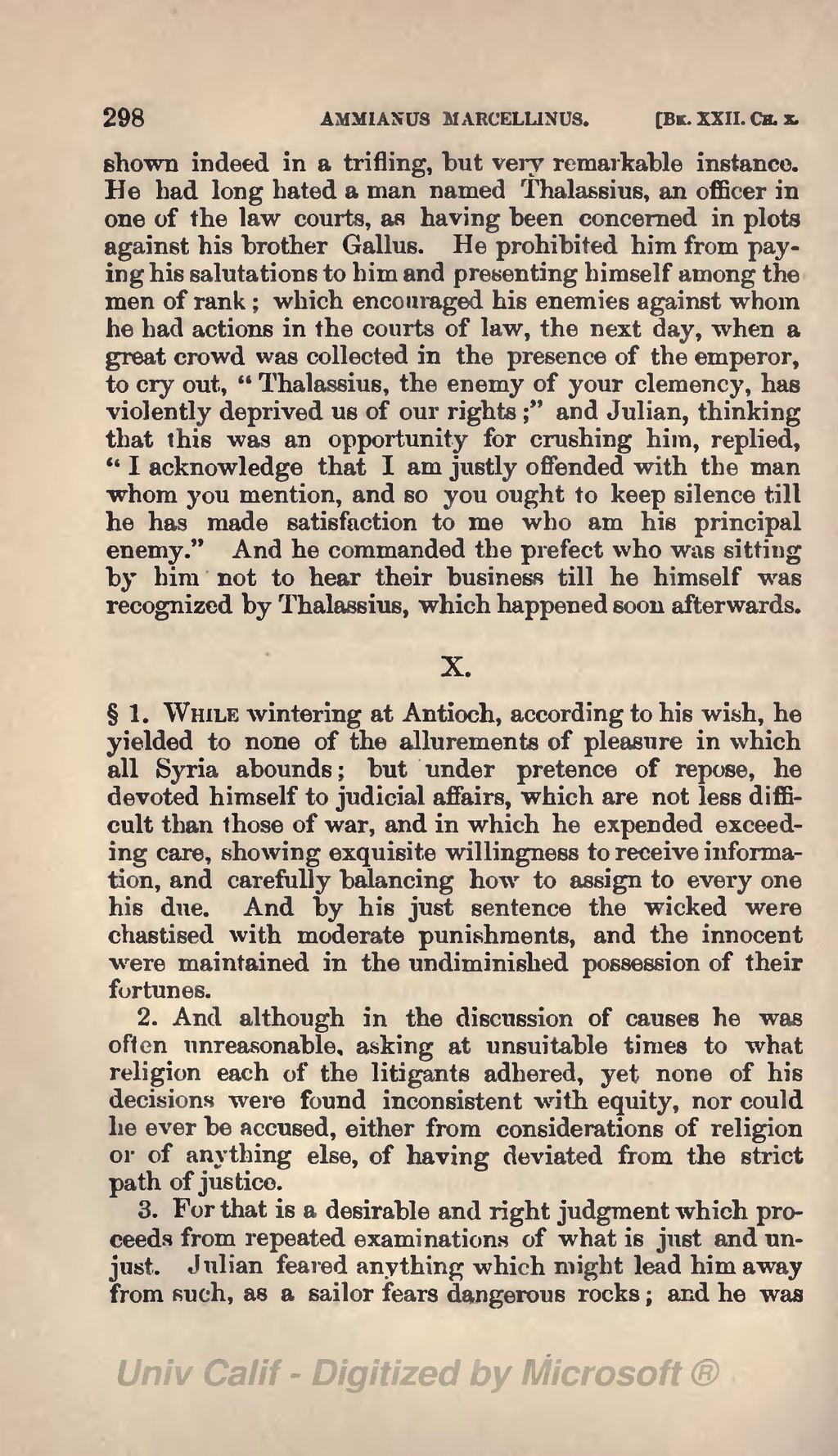indeed in a trifling, but very remarkable instance. He had long hated a man named Thalassius, an officer in one of the law courts, as having been concerned in plots against his brother Gallus. He prohibited him from paying his salutations to him and presenting himself among the men of rank; which encouraged his enemies against whom he had actions in the courts of law, the next day, when a great crowd was collected in the presence of the emperor, to cry out, "Thalassius, the enemy of your clemency, has violently deprived us of our rights;" and Julian, thinking that this was an opportunity for crushing him, replied, "I acknowledge that I am justly offended with the man whom you mention, and so you ought to keep silence till he has made satisfaction to me who am his principal enemy." And he commanded the prefect who was sitting by him not to hear their business till he himself was recognized by Thalassius, which happened soon afterwards.
X
1. While wintering at Antioch, according to his wish, he yielded to none of the allurements of pleasure in which all Syria abounds; but under pretence of repose, he devoted himself to judicial affairs, which are not less difficult than those of war, and in which he expended exceeding care, showing exquisite willingness to receive information, and carefully balancing how to assign to every one his due. And by his just sentence the wicked were chastised with moderate punishments, and the innocent were maintained in the undiminished possession of their fortunes.
2. And although in the discussion of causes he was often unreasonable, asking at unsuitable times to what religion each of the litigants adhered, yet none of his decisions were found inconsistent with equity, nor could he ever be accused, either from considerations of religion or of anything else, of having deviated from the strict path of justice.
3. For that is a desirable and right judgment which proceeds from repeated examinations of what is just and unjust. Julian feared anything which might lead him away from such, as a sailor fears dangerous rocks; and he was the
